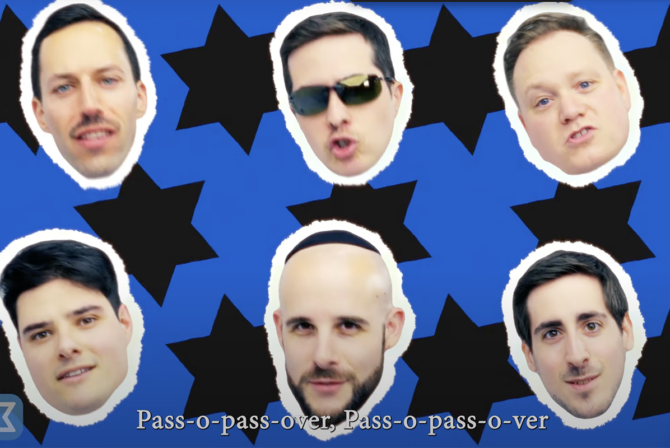Before my son was born, my husband and I each came up with a list of possible first and middle names. On a long flight, mid-pregnancy, we pulled them out and started negotiating. We agreed that we each got one undisputed veto, but everything else was up for debate.
Before we even started, I knew that my husband wanted to name him Michael, after his own late father. But there were two reasons I fended this off. One, I thought it was too common — I didn’t want him to spend his childhood being called “Mike R.”
More significant, however: I worried the weight of being named after a deceased grandfather — a grandfather who lived through the Holocaust — would be onerous.
There is a lot of pride, of course, in being named after a such a resilient man who reached near-mythical status in our family. Poppy Mike, as his grandkids called him, was born in Romania. He was orphaned by Nazi concentration camps but and went on to (improbably) create a new, all-American life for himself as a teenager in the Bronx. He had an enormous, face-splitting smile, which my husband (and later, our son) inherited.
Poppy Mike joined the army and became a theater director there. He worked at summer camps. He got a master’s degree. He was known to ask pointed questions about a person’s life — sometimes to the point of discomfort or, more commonly, to the point of making you feel important, heard. He spoke to children like adults. He spent most of his career fundraising for Jewish federations, overworking himself until his health rapidly declined when he was in his 60s.
Yes, naming our baby Michael would have been an honor — but I felt that this larger-than-life person was a tough legacy to thrust upon a newborn baby. So many people in our lives — relatives, neighbors, coworkers — like talking about him. Everyone has a story about him; everyone felt changed by knowing him. He died 23 years ago, when my husband was a teenager. I never met him, but thanks to all the stories I feel like I know him.
On the other side, many family members assumed we would name our baby after my father, Gary, who died exactly one year to the day before I was due with our son. While I was close to my dad — a loving, energetic man with a unique way of looking at the world — he was also bipolar, and an off-and-on alcoholic. My dad had a tough rural childhood with distant parents. He started drinking as a teenager and was shipped off to the army during the Vietnam War by his dad. He returned home safely and found his calling as a carpenter. He married my mom and had two kids that he was endlessly proud of, but he also spent many years battling mental and physical illnesses. His death was by his own hand. You wouldn’t think there was a legacy even heavier than a Holocaust survivor to lay on a kid, but there it is.
My son will never meet his grandfathers, but they will be known to him through pictures and stories. So many stories. They both would have loved him so fiercely that I grieve not just for their deaths, but for my son’s loss in not knowing them.
In the end, we pushed Poppy Mike’s name to the middle and Grandpa Gary’s out entirely. We named our son Eli, after my husband’s great-uncle, a man who did not survive the Holocaust. This decision felt meaningful but not oppressive: No one alive today ever knew him, and it is also my husband’s middle name, giving Eli an additional connection to his Dada, whom he adores. We have made Eli into a family name, a tradition, a reminder to never forget, but not in a way that’s too intense for a young mind and body.
I want my son, who is almost 2, to feel the history of his ancestors as something joyful and not heavy. I want him to recognize all the improbable elements that had to align; all the miracles that kept his grandfathers alive through their difficult lives long enough to create the families that would lead to his birth. I hope that, by giving him the gift of an unburdened name, he will be able to create a life that is equally as incredible as his grandfathers’ — a life that is already miraculous just by existing.







